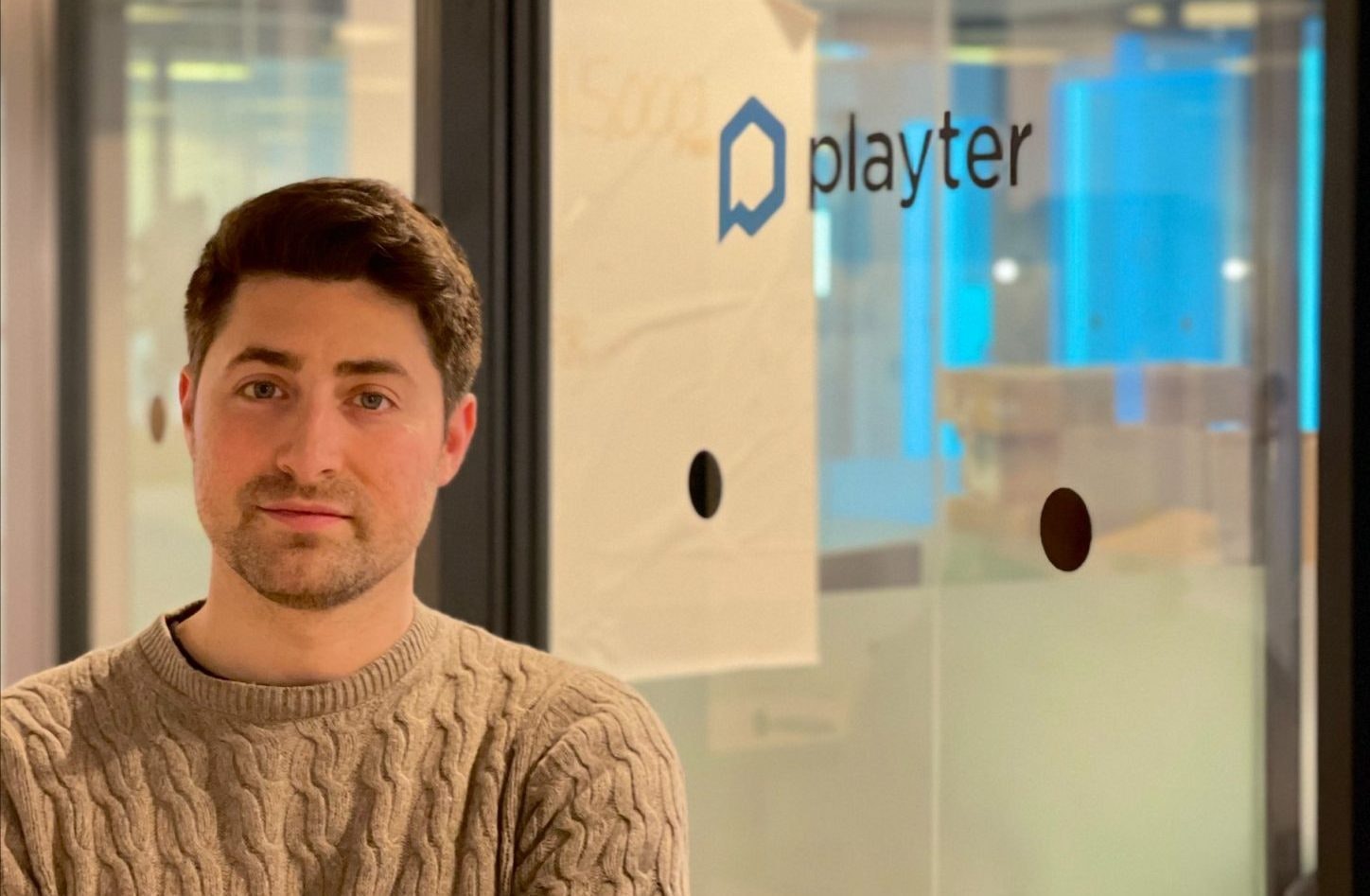Companies like Klarna have raised hundreds of millions from VCs to let consumers have their cake — and pay for it later. And now a new tribe of European startups is bringing buy now, pay later (BNPL) to businesses.
B2B BNPL is designed as a short-term financing tool to help companies manage their cash flow. In other words, it’s fintech’s answer to the age-old concept of invoice financing.
Investors are attracted to the subsector because of the relatively large upside that facilitating several larger loans to companies has versus thousands of smaller loans to individual consumers.
But underwriting an entire company that wants to smooth over its cashflow is a whole lot riskier than dealing with a consumer that wants to buy a new pair of jeans. And B2B BNPL specialists like Billie might have a run for their money as other fintechs say they want to roll out a B2B BNPL offering as well.
So, how does B2B BNPL actually work? And will it become a multibillion-dollar market like its B2C cousin, or is it just another feature we’ll see other lenders adopt over time?
Klarna’s partner — Billie
There are at least seven B2B BNPL players in Europe right now, according to Dealroom.
“B2B commerce is finally shifting online,” says Matthias Knecht, cofounder and CEO of the most well-financed of those, Billie. “This was definitely catalysed by Covid, when businesses doing B2B sales became even more aware that they need digital distribution channels."
Billie got a big boost last October when European B2C BNPL king Klarna partnered with it to rollout a B2B side to its business. It’s currently valued at $640m.
There’s also Berlin-based Mondu, which landed one of Germany's largest seed rounds last year when it raised $14m from FinTech Collective and Cherry Ventures. London-based Hokodo raised a $12.5m Mosaic Ventures-led Series A last summer to be the “Klarna for B2B”, through many of the same methods as Billie.
Elsewhere, Oslo’s Two (previously Tillit) has picked up $2.8m in funding since it was founded in 2020, and Treyd — which has the advantage of coming from Klarna’s birthplace, Sweden — has raised $2.3m since launching in 2019.
A couple of OGs in the business lending space have also recently dipped their toes into B2B BNPL. London's iwoca launched its iwocaPay product in 2020, which can make instant decisions on smaller loan sizes for B2B BNPL purchases. And Funding Circle, which IPO’d in 2018 but is worth noting, launched its first payments product in September last year.
Making B2B money
These fintechs all make money in different ways. Billie is fully concentrated on transactions between B2B ecommerce companies. This market comes in three forms: companies selling to consumers on one side and other companies on another; pure-play B2B companies that only sell to other businesses; and B2B marketplaces — a sector that’s ballooned in the last couple of years.
At the most obvious level, Knecht says companies are attracted to the ability to pay later — in 30 to 90 days, depending on what Billie offers them. But they’re also attracted to the workflow element of having the payment sent to their finance department at regular intervals, he says, rather than multiple procurement layers.
Although Knecht wouldn’t disclose Billie’s actual fees, he said that the company is using B2B credit card interchange fees (usually 1.3 to 1.9% of the transaction), and Paypal’s 1.6% to 1.7% + 35¢ transaction fee as “reference points we’re trying to match”.
That's much steeper than the B2C fees consumers are used to, capped at 0.3% — but we have EU regulation that’s only applicable to consumers to thank for that.

London-based Playter, which raised $1.7m in seed funding last month for its SME-focused B2B lending product, charges companies a monthly subscription fee starting at £550. Once subscribed, they can then apply for unsecured loans of up to £300k without interest or revenue sharing. And it’s not just focused on online ecommerce businesses like a lot of its competitors.
“If you look at Billie and Hokodo etc, they've all gone out there and done marketplace, checkout-based BNPL for the B2B world,” founder and CEO Jamie Beaumont tells Sifted.
“But our thesis is that actually, that's the wrong way to look at it. BNPL doesn't work like that in the B2B world — businesses don't purchase online as much as the consumer does, it's all invoiced.”
A risky business
But there’s a reason that BNPL for businesses is potentially more lucrative than its consumer cousin: more risk.
“We need extremely strong risk monitoring and prevention to make sure someone that’s at checkout for €5,000 will actually pay us in 30 days,” says Knecht.
That risk comes in three stages. First is identity or know your customer (KYC), which Knecht points out is “very tricky” for B2B, as companies range from the listed friends easily found on Companies House to unregistered sole traders, endorsements and municipalities that can even include fire stations.
Second is risk scoring — which incorporates credit risk (will they go insolvent next week?!) and fraud risk, which Knecht informs us includes thousands of different fraud patterns when it comes to ecommerce transactions.
And the third is working out the limits you place on a company’s borrowing — the compound risk you’re willing to take — which involves sifting through transaction data, their inventory, what’s in their basket, their IP address and their digital footprint.
It’s enough to put a lot of people off — Klarna included.
Europe’s most valuable startup even began building the code for a B2C offering in Sweden, Norway and Finland a couple of years ago, before it decided to partner with Billie, opening up avenues to the BNPL giant’s 400k merchant clients.
”We ended up having this massive scalability because you actually have a huge supply of B2B customers coming over from Klarna, combined with Billie’s proven scalable tech,” says Josh Bell, partner at Dawn Capital, the VC firm that led Billie’s latest round.
Competition heating up
Even if Klarna was put off, the profitability of B2B BNPL is attracting other established fintechs.
Italian BNPL provider Scalapay launched Magic Checkout in October, which provides infrastructure for SMEs to help speed up transactions. The company is actively looking into more B2B BNPL avenues, but at a recent panel discussion in London, the company’s CFO acknowledged that this is proving much more complex than its usual remit, owing to the trickier risk landscape.
Billie may soon have more competition from other alternative lending providers, too. One founder of a well-financed fintech in the sector tells Sifted that they’re actively looking into B2B BNPL because of how much easier it makes financing smaller purchases than the loans they normally provide.
“It’s lower risk because of the smaller value of the loan and the shorter duration [than what we’re currently providing],” they tell Sifted. “And I think the fees can be attractive.”
It’s a lot more than a feature — it’s not just a new product a neobank can launch alongside credit cards
But Bell at Dawn warns that it’s much easier said than done.
“This is a really hard problem, which is why it requires a massive team to tackle it,” he says. “I think it’s a lot more than a feature — it’s not just a new product a neobank can launch alongside credit cards, for example.”
And from an investor perspective, Stefan Klestil, general partner at Speedinvest and Billie board member, says that how we classify these lending businesses could also hinder success.
“Where investors need to watch out is in ensuring that their BNPL assets aren't valued as pure balance sheet lenders, but rather technology plays that are reinventing the way businesses conveniently access short term financing,” he says.
In order for BNPL lenders to get off the ground, he explains, they typically have to begin underwriting risk themselves, before securitising it and selling it off over time.
“In Europe this is still quite a challenge, as securitisation markets are much less developed than in the US, covenants are rather restrictive, and refinancing costs are very high,” Klestil says.
👉 Read: Everything you need to know about Klarna before you use it
Amy O’Brien is Sifted’s fintech reporter. She coauthors Sifted’s fintech newsletter and tweets from @Amy_EOBrien



